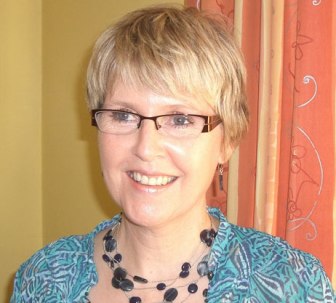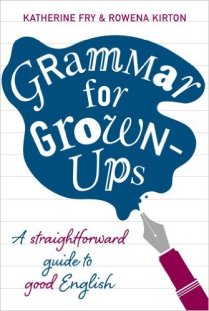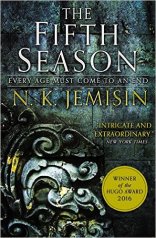To add another wonderful addition to my series of interviews with editors, writers, and other book adjacent individuals, I am thrilled to present my conversation with Sarah J. Higbee, author and creative writing teacher extraordinaire. She provides great tips for new writers as well as insight into what makes people return to science fiction again and again.
You can also explore the other interviews in this series, including one with Editorial Director Alison Hennessey and another with author E. Michael Helms.
 Bio:
Bio:
Sarah J. Higbee is a science fiction author and creative writing teacher at Northbrook College in England. In addition to working on her full length novels, Sarah has published a variety of magazine articles, poems and short stories including “How Words Were Invented” from Abandoned Towers and “Picky Eaters” from Every Day Fiction. Her latest story “Miranda’s Tempest” was published in the anthology Eve of War in June 2016.
You can follow Sarah online on Twitter at @sjhigbee, or you can find her at her website and blog.
— — —
1. Tell me a little about your time teaching creative writing. What drew you to subject? Do your courses focuses on any specific aspects of writing, and if so what are they?
I had attended the Creative Writing course for a number of years as a student, when our writing tutor was Jan Henley, aka best-selling saga writer Rosanna Ley. In 2009 Jan recommended me as her successor to Northbrook College as I had also been working with her editing manuscripts. Initially, I was rather overwhelmed and nearly didn’t accept the post. I’m so glad I did! I have learnt so much about the process of writing since teaching it…
The heart of the course revolves around students bringing in their own writing, reading it aloud while the rest of us listen and read a copy. The class offers their feedback, while I annotate the script and give my own critique. I’m very fortunate to have a group of experienced writers who are nonetheless respectful of their peers’ sensibilities. In addition, every term I provide a specific teaching focus. Last term we were looking at productivity, how to deal with writers’ block and editing. I provide how-to handouts every other week, interspersed with a writing exercise. We also have a Grammar Spot and Poetry Workshop every term and I also set weekly homework tasks, which are optional.
 2. Learning how to write can be more complicated than it seems. What are some of your favorite resources for writers? Are there any websites or books that you find yourself returning to again and again?
2. Learning how to write can be more complicated than it seems. What are some of your favorite resources for writers? Are there any websites or books that you find yourself returning to again and again?
You’re right, Kristen – there is a great deal of technique in writing to entertain and engross other people in your creation. When trying to sort out grammar rules, my favourite go-to book is Grammar for Grown-Ups by Katherine Fry and Rowena Kirton. It manages to provide clear examples without being patronising and is the book I invariably recommend to my students. I also use The Emotion Thesaurus by Angela Ackerman & Becca Puglisi.
As for websites – my favourite is the wonderful Thesaurus.com, which also has a dictionary option and tells you when the word first came into general usage, which has proven to be invaluable when trying to avoid using anomalous vocabulary in my latest novel, Miranda’s Tempest, which is set in 1611. Other useful sites – Kate Monk’s Onomastikon for names from anywhere in the world; The Color Thesaurus by Ingrid Sundberg; Prize Magic for a great range of writing competitions… These are the ones which immediately spring to mind
3. What are some of the common mistakes that you see in the works of new writers?
The most common mistake that new writers make is over-explaining. They do not trust readers to ‘get it’, so they hold up the pace by telling too much, rather than showing the reader the action and allowing their readers to join up the dots. The next most common error is getting viewpoint wrong, either head-hopping or sliding out of point of view, particularly in dialogue scenes. Punctuation mistakes are made most commonly when writing dialogue.
4. In your own writing, you tend to explore the realms of science fiction. What draws you to that genre? What does sci-fi offer to readers and writers that other genres might not?
Before you open the cover, you have no idea where you’ll be going. As a genre it can encompass a foot-to-the-floor space opera romantic romp, or a thought-provoking commentary on our own social issues. The best writers provide an intellectually challenging read alongside a cracking tale, while whisking me away from my daily problems. I’m aware that folks often think of science fiction in terms of Dr Who/Star Trek/Stargate spinoff books. However, these are no more representative of the genre than Mills and Boon reads define romantic fiction.
 5. And now for the question that I ask all of my interviewees, what is a forthcoming book (either yours or someone else’s) that you are excited to finally see in print?
5. And now for the question that I ask all of my interviewees, what is a forthcoming book (either yours or someone else’s) that you are excited to finally see in print?
Coming in 2017 – Stone Sky which is the third in N.K. Jemisin’s fabulous Broken Earth trilogy. And if you haven’t yet read The Fifth Season, the award-winning dystopian sci fi start to this series, I very highly recommend it. I shall be jigging up and down with excitement when I finally get my hands on the final book.
— — —
Thank you again, Sarah, for offering some wonderful insight into the passion and pitfalls involved in creative writing!
I encourage everyone else to check out the resources that Sarah mentioned as well as her blog, which is always filled with recent book news and fabulous reviews.

Thank you! This is extremely helpful.
I am going to start tutoring an adult with grammar problems, and I’m wondering if Grammar for Grownups will be helpful for her. She said she wants to better herself and I give her a lot of credit for wanting to do that. She’s a manager in retail and has trouble using the right grammar (tenses, the different “there” words, etc). So I’m going to look into that because there’s nothing worse than someone being patronizing when you are trying to learn, and I don’t want to come off that way! 😊😉
LikeLiked by 1 person
I would certainly recommend it. Over the years as both teacher and writing student, I’ve gone looking for grammar books and this is the best I’ve found by a long country mile. There are also exercises in the back to help a student learn various technical issues.
LikeLiked by 1 person
That sounds like a rewarding tutoring relationship. Best of luck to both you and your student! I’m sure she’ll do wonderfully.
LikeLiked by 1 person
Thank you! She’s great: she knows she has limits and wants to work on them. It’s more than most grown adults are willing to admit!
LikeLiked by 1 person
Reblogged this on Brainfluff and commented:
Many thanks to Kristen for her interview and the chance to talk about my Creative Writing courses.
LikeLiked by 1 person
Thank you Kristen – what a lovely way to light up a particularly cheerless Monday afternoon after a hectic morning teaching and Fitstep class! You have done me proud…
LikeLiked by 1 person
Thank you for your willingness to share your wisdom! It was wonderful to work with you and read your advice.
LikeLiked by 1 person
Likewise, Kristen:).
LikeLiked by 1 person
Interesting that she mentions The Emotion Thesaurus. I recently picked up on this valuable book from another recommendation.
LikeLiked by 2 people
It does seem like a popular recommendation, which is a bit surprising to me since I only recently stumbled upon it myself.
LikeLike
Another great interview, thanks Kristen.
LikeLiked by 1 person
Thanks, Ree!
LikeLike
An excellent interview.
LikeLiked by 1 person
Thank you! I was lucky to have such a good interviewee.
LikeLiked by 1 person
Reblogged this on The Owl Lady.
LikeLiked by 1 person